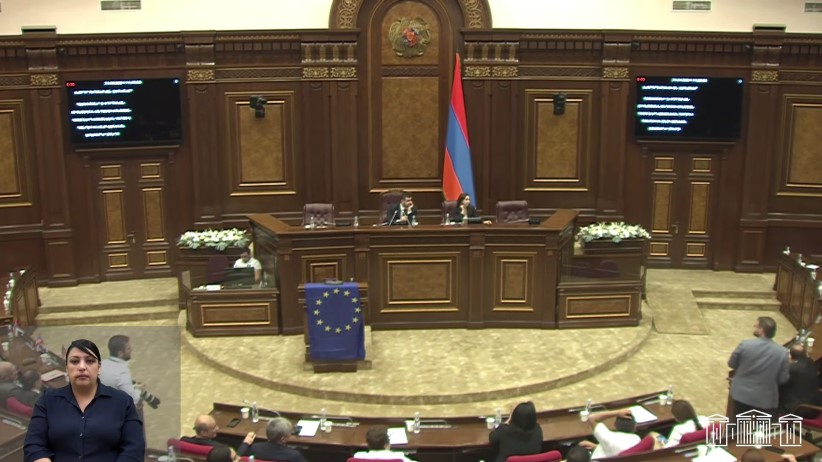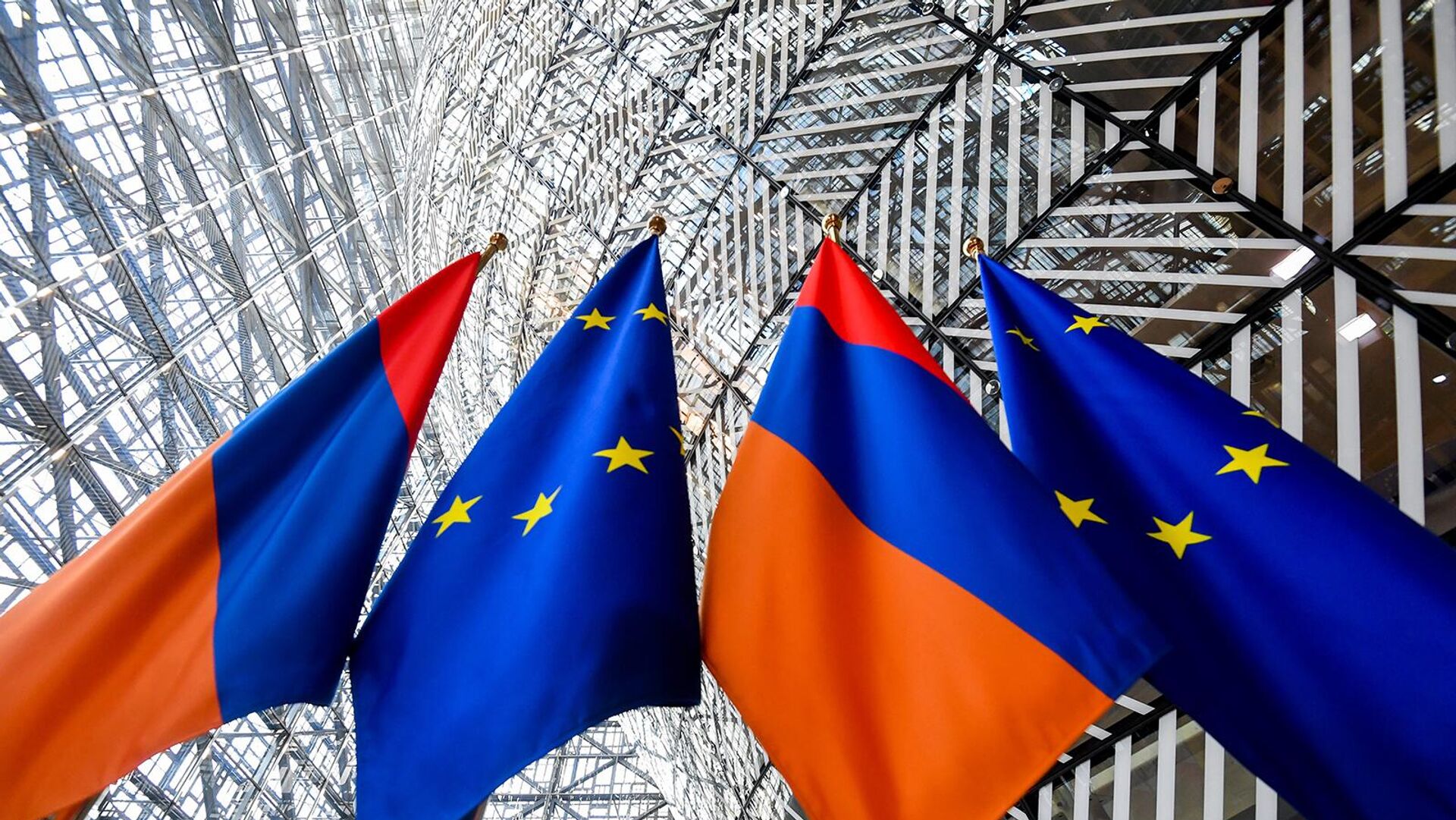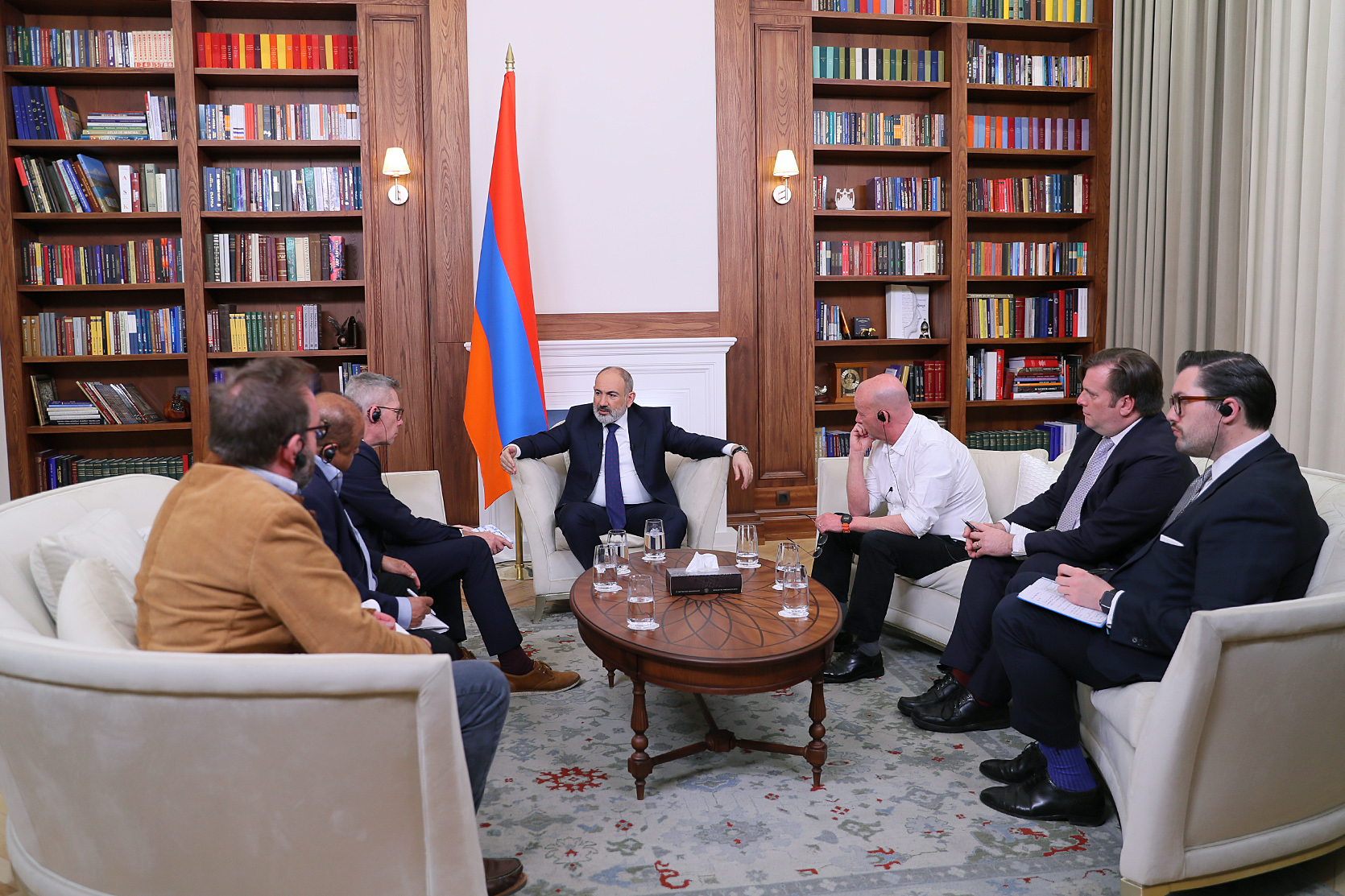Armenian EU membership referendum backers gather more signatures than required
Armenia gathers EU referendum support
Central Election Commission of Armenia has received 59,742 signatures in support of the initiative to hold a referendum on joining the European Union. The initiative group was required to submit only 50,000 signatures, however, to avoid potential issues if some signatures are found invalid, the initiators waited until they had nearly 10,000 more. Signature collection began on September 16 and will continue in electronic format until November 14, over the two-month period outlined in the constitution. The initiative is led by the “Platform of Democratic Forces,” formed by pro-Western political groups.
If the CEC verifies the validity of the submitted signatures, the question of holding a referendum will be discussed in parliament.
The referendum will take place if the deputies approve the draft law. If they reject it, the referendum may still occur—without parliamentary discussion—if the initiators manage to gather five times as many signatures, totaling 300,000. However, in this case, the initially collected 60,000 signatures will not be included in the new count.
- Signature collection in Armenia: will there be a referendum on EU membership?
- “Armenia’s foreign policy should be decided by referendum.” Opinion from Yerevan
- “EU won’t fuel Yerevan’s false hopes”. Opinion
Central Election Commission verifies signatures’ validity
The Central Election Commission (CEC) must confirm the validity of the submitted signatures. According to Deputy CEC Chair Nune Oganesyan, this involves simply matching citizens’ data with the State Register and ensuring they were eligible to join the signature collection.
She explained to journalists the conditions under which signatures may be deemed invalid:
“According to the Referendum Law and the CEC’s directive, a signature is removed from the list if not all required fields are filled out, meaning some data is missing, or if there are duplicates. In such cases, only one signature from that citizen is counted.”
If the CEC confirms the validity of the required 50,000 signatures, it will publish the decision, and the initiative group will then be able to submit their draft law to parliament for consideration.
Residents of major cities led signature collection efforts
Almost 60,000 signatures submitted to the Central Election Commission were collected across 60 municipalities, said Artak Zeynalyan, a member of the initiative group. He explained that they didn’t have enough people to be constantly present in all regional municipalities to coordinate the signature collection over the two-month period.
According to his assessment, the most active participants were residents of the capital and two large cities—Gyumri and Vanadzor:
“However, we witnessed great enthusiasm everywhere. Society showed a high level of awareness. People understood why they came to sign.”
Zeynalyan also explained what will follow the CEC’s decision. First, the draft law on holding a referendum will be discussed by the relevant committee of the National Assembly. If it receives a positive assessment, the issue will be added to the agenda of plenary sessions and will be discussed in the first and second readings:
“How will the political majority respond to the draft law? We have framed our proposal in a way that supports Armenia in achieving its goals as effectively as possible. This will in no way create obstacles or limit the government’s room for maneuver.”
Armenian authorities uncertain if EU ‘ready to accept’ this proposal
Deputies of the ruling Civil Contract faction occasionally state that a referendum should be the final, not the first, step in Armenia’s EU integration.
Members of the initiative group respond by saying that this referendum will merely declare the beginning of the process. It will not replace the referendum that should be held later if an international agreement is signed.
“Of course, a membership application should be submitted, a process of alignment with EU standards should take place, and only after that can candidate status be obtained. Then, when an international agreement is signed, it must be put to a referendum with the question: ‘Do you agree to join the EU?’,” stated Artak Zeynalyan.
The Armenian Prime Minister Nikol Pashinyan also commented on the referendum initiative, reminding that he had personally expressed Armenia’s readiness to be as close to the EU as it deems possible in the European Parliament.
“If I thought the people of Armenia did not share this idea, I would not have made such a statement. The main issue with holding a referendum is that I don’t have an answer to the question of whether the EU is ready to accept us. If we hold a referendum, we need to campaign. In that case, people will ask us questions: ‘How, when, does the EU want this?’ People will ask if the EU is ready to accept us. I cannot provide an answer to that question,” said the Prime Minister.
Armenia gathers EU referendum support





















